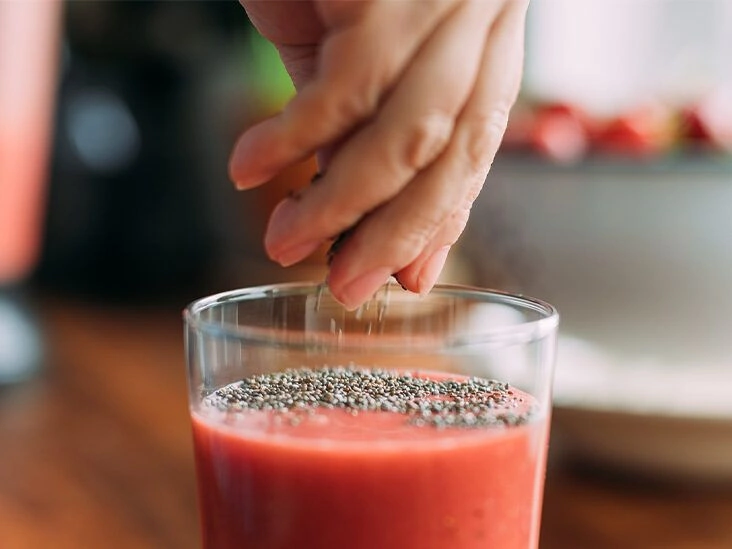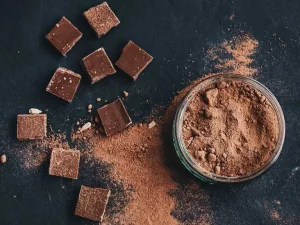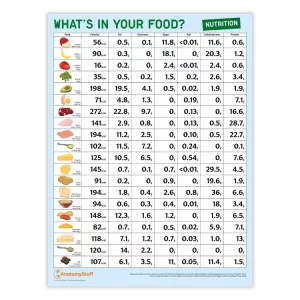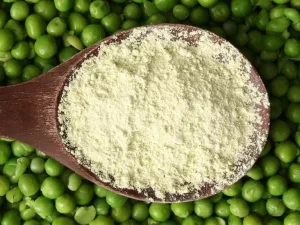Chia seeds are tiny but packed with nutrients. Once a dietary mainstay for the ancient Aztec and Maya civilizations, these seeds have been praised for their health-promoting qualities for generations.
The nutrient profile of chia seeds may support cardiovascular health, contribute to stronger bones, and help regulate blood glucose levels.
Besides their nutrition, chia seeds are highly adaptable in the kitchen. I often take advantage of their gel-like texture by blending them with liquid to make chia pudding.
Below are seven science-backed health benefits of chia seeds.

2. Rich in antioxidants
Chia seeds are also a notable source of antioxidants.
These antioxidant compounds not only prevent the delicate fats in chia seeds from oxidizing but also support human health by neutralizing reactive molecules called free radicals, which can damage cellular components if they accumulate.
For instance, free radical damage is linked to aging and various illnesses, including cancer.
The antioxidants found in chia seeds include chlorogenic acid, caffeic acid, myricetin, quercetin, and kaempferol. These compounds may provide protective effects for the heart and liver and could possess anticancer activity.
For example, chlorogenic acid may contribute to lower blood pressure, while caffeic acid is known for anti-inflammatory properties.
SummaryChia seeds contain many antioxidants. These molecules protect the seed’s fragile fats and may also deliver health advantages for people.
3. May aid weight management
The fiber and protein in chia seeds may assist individuals trying to lose weight.
One ounce (28 g) of chia seeds contains nearly 10 g of dietary fiber, making them roughly 35% fiber by weight.
Although findings are mixed, some research indicates that increased fiber intake can help prevent overweight and obesity (11).
Additionally, the protein in chia seeds may help curb appetite and reduce calorie intake.
In one study of 24 people, consuming 0.33 oz (7 g) or 0.5 oz (14 g) of chia seeds mixed into yogurt at breakfast increased satiety and decreased short-term food intake compared with yogurt without chia.
Still, studies on chia seeds’ effectiveness for weight loss have produced inconsistent results.
An older 2009 trial with 90 overweight participants found that taking 50 g of chia seed supplements daily for 12 weeks had no impact on body weight or markers such as blood pressure and inflammatory indicators.
Conversely, a 6-month study of 77 adults with overweight or obesity and type 2 diabetes on a calorie-restricted diet reported that those who took daily chia seeds experienced significantly greater weight loss than those given a placebo.
While chia seeds alone are unlikely to cause weight loss, they may be a helpful component of a balanced, nutrient-dense eating plan for people trying to lose weight.
SummaryChia seeds provide protein and fiber, both linked to weight-loss benefits. However, evidence specifically tying chia seeds to weight loss is mixed.
4. May lower heart disease risk
Because chia seeds are rich in fiber and omega-3 fatty acids, including them in your diet might lower the risk of cardiovascular disease.
Soluble fiber, which chia seeds contain, can reduce total and LDL (bad) cholesterol in the blood, thereby potentially decreasing heart disease risk.
Intake of ALA, the omega-3 fat found in chia seeds, has also been associated with a reduced risk of heart disease.
However, studies that directly test chia seeds’ effects on heart health have yielded mixed findings.
Some animal studies indicate chia seeds can lower certain cardiovascular risk factors, such as high triglycerides and oxidative stress (17, 18).
A few human trials reported that chia seed supplements significantly lowered blood pressure in people with hypertension, a major risk factor for heart disease.
Overall, chia seeds may offer heart-protective effects, but more rigorous human research is required.
SummaryChia seeds could help reduce heart disease risk, likely due to their fiber and ALA content. More human studies are needed to confirm this.
5. Packed with bone-supporting nutrients
Chia seeds are rich in several nutrients essential for bone health, including:
- calcium
- phosphorus
- magnesium
Numerous observational studies indicate that adequate intake of these minerals is important for maintaining bone mineral density, a measure of bone strength.
Additionally, the ALA in chia seeds may benefit bone health. Observational evidence suggests consuming ALA may be linked to better bone mineral density.
Thus, regularly including chia seeds in your diet might support bone strength.
One animal trial reported that rats given daily chia seeds for about 13 months had higher bone mineral content than controls, and the researchers suggested ALA could have played a role.
That said, beyond animal data, human research on this subject is limited, and more studies are necessary.
SummaryChia seeds provide calcium, magnesium, phosphorus, and ALA — nutrients associated with improved bone mineral density.
6. May help lower blood sugar
Eating chia seeds may assist with blood sugar control, possibly thanks to their fiber and other beneficial components.
People with diabetes often struggle with elevated blood glucose. Persistently high fasting blood sugar is linked to a higher chance of complications, including cardiovascular disease.
Animal studies show that chia seeds might improve insulin sensitivity, which could help stabilize post-meal blood sugar levels (26, ).
Human data are scarce, but some earlier trials have reported promising outcomes.
Specifically, older studies from 2010 and 2013 found that consuming bread made with chia seeds reduced postprandial blood sugar spikes in healthy adults versus eating bread without chia seeds.
Nonetheless, additional research is required to clarify how chia seeds affect blood glucose regulation in people.
SummaryAnimal research suggests chia seeds may aid blood sugar control, but more human studies are necessary.
7. Simple to add to your meals
Chia seeds are extremely easy to incorporate into meals. Their mild flavor lets you add them to almost anything.
They generally don’t require grinding, cooking, or other preparation, making them a convenient ingredient.
Eat them raw, soak them in juice, or stir them into oatmeal, puddings, smoothies, and baked goods. Sprinkle them over cereal, yogurt, roasted vegetables, or rice dishes. They also act as an effective binder in homemade fritters.

Because they absorb water and fats, chia seeds can thicken sauces and serve as an egg substitute. They can also be mixed with water to form a gel.
The seeds are usually well tolerated. However, if you’re not accustomed to high fiber intake, consuming a large amount at once could cause digestive discomfort such as bloating or diarrhea.
SummaryChia seeds are easy to prepare and useful as an egg alternative or as an addition to oatmeal and smoothies.
Frequently asked questions
How many chia seeds should you eat daily?
A typical portion is one ounce (28 g or 2–3 tablespoons) of chia seeds. Be sure to drink enough water to help prevent potential digestive side effects.
What happens if I eat chia seeds every day?
Limited animal and human research indicates daily chia consumption may be linked to greater weight loss and improved bone mineral content. Still, eating excessive amounts can cause side effects, so begin with a modest serving like 1 oz (28 g) daily and stay well hydrated.
Can eating chia seeds reduce belly fat?
Both animal and human studies suggest chia seeds may help decrease visceral (abdominal) fat in some groups. However, larger and better-quality trials are needed.
Is a spoonful of chia seeds a day beneficial?
A tablespoon of chia seeds equals about 0.5 oz or 14 g. This small amount is unlikely to cause adverse effects but may be too low to produce noticeable benefits. You might want to consume a bit more to see effects.
The bottom line
Chia seeds are rich in minerals, omega-3 fats, antioxidants, and fiber, and they’re easy to prepare.
Research indicates chia seeds may offer several health benefits, from supporting weight management to potentially lowering heart disease risk. However, more human studies are necessary before drawing definitive conclusions.
If you’d like to try chia seeds, add them to smoothies, oatmeal, yogurt, baked recipes, and more as a convenient way to boost nutrient intake.
























Leave a Reply
You must be logged in to post a comment.